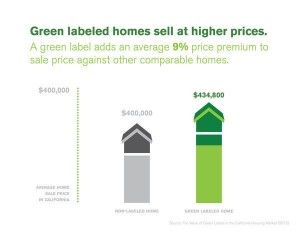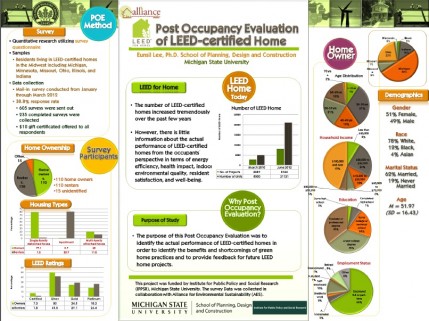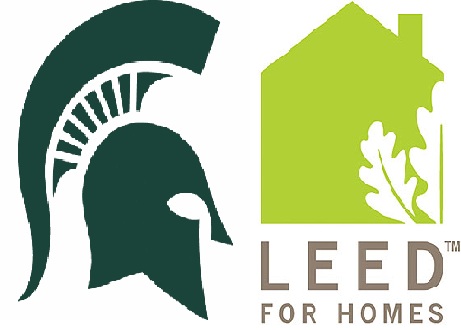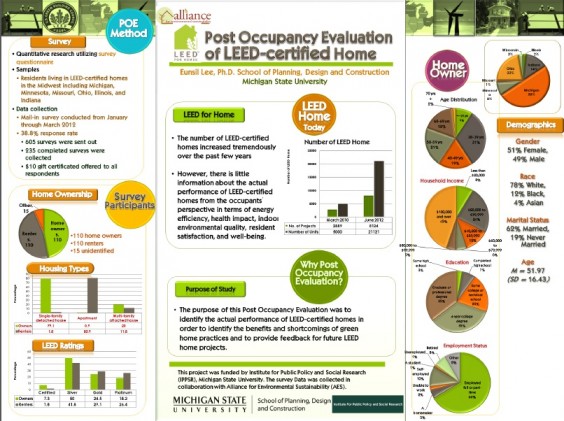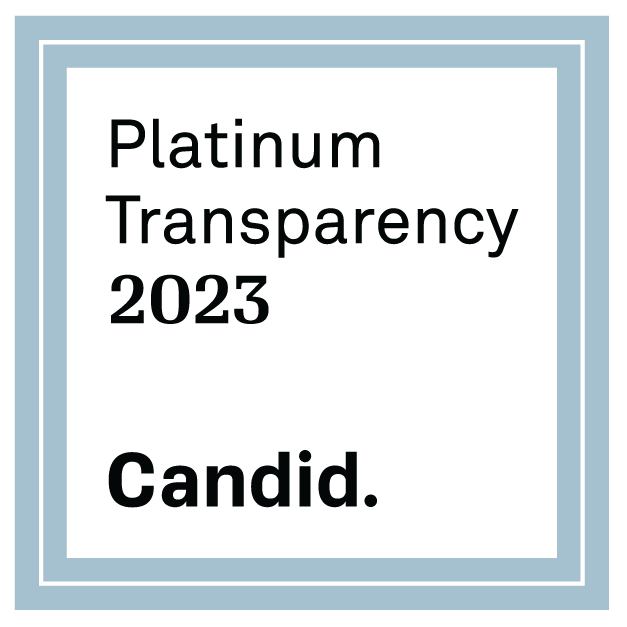Annual Report 2012
The Green Home Institute () is excited to share our past year’s phenomenal successes in providing education on high-performance home and green building principals, practices, tools/resources and 3rd-party verification programs. Please consider a year-end donation to help our continued success. Here’s a recap of 2012 activities:
Green Build Accreditation On site Seminars
has provided 18 course offerings throughout the Midwest in order to educate participants on basic green building necessities and how to navigate the LEED rating system through the LEED 201: Core Concepts & Strategies class, basics of residential green building and how to utilize the LEED for Homes rating system through HOMES 252: Understanding LEED for Homes and the HOMES 401 course to qualify more Green Raters who can verify LEED for Homes projects. We reached out to nearly 200 participants who are now more prepared to take courses to become accredited LEED Green Associate’s and/or LEED Accredited Professionals with the Homes designation.
Online Green Building Education
Working internally and partnering with GreenExpo 365 ,we educated over 1,000 people on 1-hour continuing education green building web-based seminars. We worked with 10 different experts who are green building professionals on telling stories of their approach to sustainable construction and showing case studies of their success. Some of these web-based seminars include, Introduction to the Living Building Challenge, Introduction to LEED for Homes, Rehabbing to LEED & Green Homes, Green Making Green: Green Remodeling Intro, The US’s oldest Net Zero Remodel success story, Success in Education & Awareness in LEED for Homes , A Journey to LEED & Passive House, Appraising Green Homes and Introduction to LEED for Homes Multifamily Certification.
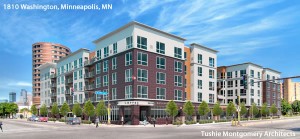 Local Green Building Courses & Tours
Local Green Building Courses & Tours
Collaborated with partners to make these happen.
- Illinois
- Passive House Consultant Training Program, Slotnick Residence LEED Tour, Better Buildings, Better Business Conference Seminars on LEED Platinum foreclosure rehab, Rain water harvesting workshop, Greening real estate adding value to home talk, tour De La Fleur 3 flat gut rehab, Introduction to LEED for Homes & Multi Family program, LEED for Homes Existing Homes talk, Energy Star Version 3 introduction, Building low cost green homes talk, Introduction to green building appraisal practices and principals, and the Lincoln park town home gut rehab tour + many more.
- Michigan
- Habitat for Humanity Green Homes Summit Michigan – Green Home presentations, LEED almost Passive House Homes tour, Energy Star Version 3 introduction, Mission Zero Fest – Certify it talk, LEED VS NGBS VS Green Built MI
- Wisconsin
- Newen House Passive House Zero Energy Bus – Home Tour.
- We also have delivered training through HUD and the Office of Native American Programs to instruct tribal communities on building greener homes.
Green Home Education Videos
Completed 3 Green Home Videos show casing details of Green, healthy home 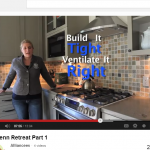 building verified to be high performance via LEED certification. 1 video has been a 1.5-year project handed down through 3 Grand Valley State interns as a collaborative effort stretching across semesters highlighting one of the greenest homes in West Michigan. Videos are available at our youtube channel.
building verified to be high performance via LEED certification. 1 video has been a 1.5-year project handed down through 3 Grand Valley State interns as a collaborative effort stretching across semesters highlighting one of the greenest homes in West Michigan. Videos are available at our youtube channel.
High Performance HVAC Energy Star Qualified Contractor Trainings
- partnered with Advanced Energy to develop and train a network of qualified HERS raters to further train HVAC contractors throughout the
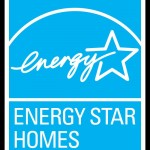 Midwest to learn and meet the requirements of working on Energy Star ersion 3 Homes. HVAC contractors will better implement load calculations, duct sizing, and other critical skills needed to certify a high-performance Energy Star home. Finding qualified HVAC contractors has been an impediment to the program, and with this training is helping overcome that hurdle in the Midwest. Please consider a year-end donation to help our continued success.
Midwest to learn and meet the requirements of working on Energy Star ersion 3 Homes. HVAC contractors will better implement load calculations, duct sizing, and other critical skills needed to certify a high-performance Energy Star home. Finding qualified HVAC contractors has been an impediment to the program, and with this training is helping overcome that hurdle in the Midwest. Please consider a year-end donation to help our continued success.
Living Building Challenge Collaboration
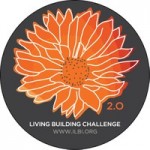 partnered with the International Living Future Institute to deliver a very successful 6-hour seminar in Chicago on Understanding the Living Building Challenge. We garnered over 40 attendees, 2 – 3 times more than those courses usually attract in Chicago, and educated people on a holistic, approach to triple bottom line building for homes, offices, industry and communities. Based on the workshop’s success, we are planning 3 more in the Midwest for 2013. Please consider a year-end donation to help our continued success.
partnered with the International Living Future Institute to deliver a very successful 6-hour seminar in Chicago on Understanding the Living Building Challenge. We garnered over 40 attendees, 2 – 3 times more than those courses usually attract in Chicago, and educated people on a holistic, approach to triple bottom line building for homes, offices, industry and communities. Based on the workshop’s success, we are planning 3 more in the Midwest for 2013. Please consider a year-end donation to help our continued success.
LEED ND Grant
- is excited to announce that we won a grant from Bank of America in
 partnership with Integrated Architecture, Habitat for Humanity Kent County and The City of Grand Rapids to help transform our local neighborhood to a LEED Neighborhood Development. We will receive this $25,000 in Q1 2013 and will be used to develop a plan for 3 pillars of LEED ND certification in the Wealthy Heights neighborhood of Grand Rapids Michigan in regards to sustainable sites development which goes along with our Storm Water mitigation issues, location and transportation which means the walkibility and flow of the streets, sidewalks and bus lines and Green Infrastructure which is ensuring healthy, affordable, efficient and durable construction and remodeling practices in the neighborhood.
partnership with Integrated Architecture, Habitat for Humanity Kent County and The City of Grand Rapids to help transform our local neighborhood to a LEED Neighborhood Development. We will receive this $25,000 in Q1 2013 and will be used to develop a plan for 3 pillars of LEED ND certification in the Wealthy Heights neighborhood of Grand Rapids Michigan in regards to sustainable sites development which goes along with our Storm Water mitigation issues, location and transportation which means the walkibility and flow of the streets, sidewalks and bus lines and Green Infrastructure which is ensuring healthy, affordable, efficient and durable construction and remodeling practices in the neighborhood.
LEED Certifications & Registrations
- In 2012 registered over 1200 units spanning across 70 different
projects, essentially on par with 2011 numbers. LEED registration shows that a project team has thought through high performance and sustainable practices prior to construction the house. makes every effort to ensure the teams are given the tools and resources to complete the projects and earn LEED certification, working on over 5000 units encompassing over 1500 separate projects as of 2012. - We value 3rd party verification and certification as a benchmark to show that a project has actually had the oversight and performance testing done to ensure performance, durability, efficiency and health issues are taken care of for the life of the building. LEED certification is also a tool for education as it shows real projects that meet a national definition of green, is above standard building practices, and teaches builders, designers, homeowners and the community involved in the projects about sustainable home construction. has been an original LEED provider since 2005.
Case Studies on LEED Affordable Housing
- Partnered with Michigan State University (MSU) on a $10,000 grant given to the University to survey homeowners of the qualitative features of their LEED certified homes throughout the Midwest . Thanks to MSU we have reached over 200 homeowner/renters LEED certified housing and learned more about the health and energy effects of their homes and habits within them. (Read the LEED post-occupancy research report here)
Strategic Planning
- has been focused mainly on LEED for Homes programming since 2007, but beginning in 2012, we have been expanding our programming to other areas including,
- educating local community members through a hands-on demonstration center and training,
- developing an online demonstration center to help consumers make the best choices when building or remodeling in a sustainable manner,
- developing and delivering a 3rd party remodeling certification program for homeowners and remodelers who want to learn how to remodeling in a healthy, efficient and durable manner and verify it was done correctly.
- Helping lead the charge on the Greening of the MLS in our headquarters city of Grand Rapids so that we can properly assess and value green homes.
We are thankful to Andrea Poma, our board treasurer, for leading the charge on Strategic planning this year, working with volunteers and interns to broaden our reach to programs that meet our mission.
Staffing Changes
- Brett Little, LEED, BS: Sustainable Business has been with the Green Home Institute since August 2008, starting as a volunteer
 and working his way up past Americore Vista program, part time employee and then interim Executive Director after Calvin Delano left. Brett has been recently married and bought an 80-year old house in Grand Rapids and began a moderate green rehab on the house, reducing energy use by 50%. As of December 3rd, Brett has been promoted to fulfill the official Executive Director role. Brett is excited to begin launching new programs to help with unique education in Green Building.
and working his way up past Americore Vista program, part time employee and then interim Executive Director after Calvin Delano left. Brett has been recently married and bought an 80-year old house in Grand Rapids and began a moderate green rehab on the house, reducing energy use by 50%. As of December 3rd, Brett has been promoted to fulfill the official Executive Director role. Brett is excited to begin launching new programs to help with unique education in Green Building. - We are thankful for a $13,200 grant from the Home Inspector General to bring on Jamison Lenz, LEED GA, BS Sustainable Business as the
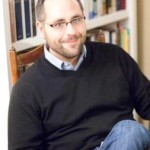 LEED for Homes program manager. He began working full time as of November first after serving one of our biggest partners, Habitat for Humanity Kent County as an Americorps Member tasked with LEED for Homes certification oversight & Weatherization of existing homes. Jamison has long been a sustainability advocate, being one of the first graduates of Aquinas College’s first of it’s kind Sustainable Business program.
LEED for Homes program manager. He began working full time as of November first after serving one of our biggest partners, Habitat for Humanity Kent County as an Americorps Member tasked with LEED for Homes certification oversight & Weatherization of existing homes. Jamison has long been a sustainability advocate, being one of the first graduates of Aquinas College’s first of it’s kind Sustainable Business program.
Rater Network
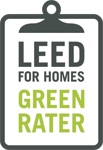 has maintained and expanded a network of 40 + Energy/Green Raters throughout the Midwest in 8 states to help deliver 3rd party onsite verification to Green Home projects and help educate project teams on the necessary measures taken to achieve high performance homes.
has maintained and expanded a network of 40 + Energy/Green Raters throughout the Midwest in 8 states to help deliver 3rd party onsite verification to Green Home projects and help educate project teams on the necessary measures taken to achieve high performance homes.
Intern Highlights
Abigail Koprowicz, A sustainable business student & world traveler from
first assignment was to be a LEED Home Video Host which had her immediately re stating details of LEED & Green Building that she learned on the spot. Other activities are work with Chuck Otto, a media consultant on helping tailor their green home education news to conventional media. After graduation, Abigail plans to attend graduate school and study environmental anthropology.
Grand Valley State University has provided with some of the best video/production interns. They have helped us follow a full house from start to finish and passed the project on without delay though 3 different interns. Thank you to Andrea, Lauren & Alex. The project will be released soon on our You Tube Channel
has worked with 10 interns from various institutions including:
- Aquinas, GVSU and Davenport
- Sustainable Business, Film, Business Administration
- Combined effort of over 120 HoursWorked on Case Studies, Strategic Planning, Board Participation, Green Home Videos, Green Home Research, News Articles, Project Team Interviews and participated free of charge in education courses
Support in 2013
As a 501(c)3 charitable organization (view our details), we deliver green building education courses throughout the Midwest at minimal cost and no profit. Please support us to help keep these going. Your donation to the Green Home Institute may be tax-deductible. Please check with your accountant or tax attorney for details.
Thank you for your support!

